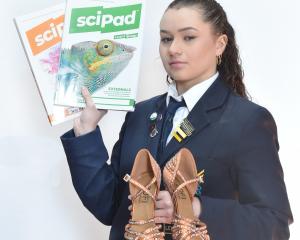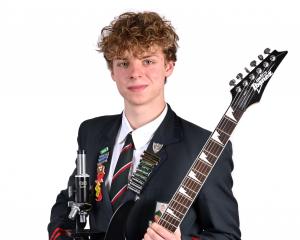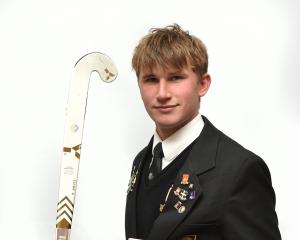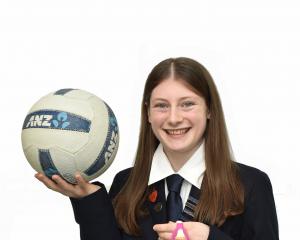Studying at Cambridge is such an incredible experience that Andrew Haines sometimes needs a reality check.
"It's an amazing place and sometimes I have to pinch myself and take a minute to remember that I actually do live here," says the former Dunedin man.
Since receiving an Otago Daily Times Class Act award in 2004, Haines has been awarded a top scholarship and is now doing a PhD in physics in the nanophotonics centre at the University of Cambridge.
Studying there is fantastic, "both in the superlative sense and in the sense of being fantasy-like", he says.
"I mean, the university was around before New Zealand was even settled. It was founded in 1209, so I got to enjoy the 800th anniversary celebrations when I arrived, and even the "new" buildings predate the Europeans' arrival in New Zealand. That's mind-bogglingly old.
"It's hard not to draw comparisons with Harry Potter. The buildings could easily be sets from the movie ... and students frequently get around in academic robes, which are worn to formal dinners most nights of the week."
Undergraduates receive a "staggering" amount of one-on-one tutoring and as a postgraduate student, he is in a well-funded lab with talented people doing world-class research.
Haines started out at the University of Otago doing computer science and maths but the one physics paper he picked up as a timetable-filler captured his imagination so he pursued that.
After graduating with a bachelor of science (hons) degree, he received the Woolf Fisher scholarship which is given annually to three New Zealand students with outstanding academic abilities. The award is worth about $100,000 a year, including tuition fees, living expenses and flights home, and enables recipients to complete up to four years of study at either Cambridge or Oxford.
His younger brother, Ross (Class Act recipient 2007), won the same scholarship last year and will soon embark on doctoral study at Oxford.
Sons of scientists, the brothers grew up in Mosgiel and were both duxes of Taieri College but are studying different subjects. Ross plans to use advanced statistical techniques to help explain how the English language has evolved over time while Andrew's field of nanophotonics is concerned with the production of materials that interact with light in interesting and sometimes surprising ways.
This is achieved by engineering structures on the scale of the wavelength of light - a few hundred nanometers or a thousandth of the width of a human hair.
Nanophotonic devices can slow light down to walking speed, trap it entirely or bend it the "wrong" way, leading to the much publicised "invisibility cloak", he explains, adding that his research is in the area of polymer opals.
Synthetic opals can be formed from glass or even plastic spheres but the drying process is slow and the resulting crystals fragile.
"The polyester opals we make in the lab are formed by coating hard polystyrene spheres in soft ... shells which merge together when squashed to form a continuous matrix between the hard cores. When shear is applied to the material by rolling it into a thin sheet, the cores are forced into nice ordered layers exactly like those found in the gemstone."
Durable and visually distinctive but hard to reproduce, these polymer opals could have applications in security, for example, banknotes or product packaging. Because they change colour dramatically when stretched, polymer opal coatings could be used to detect strain on things that are not supposed to stretch or bend too much, such as building foundations and seatbelts. The material could also be used in many of the areas we already use plastics, a field that has considerable commercial potential because, unlike dyes, colours generated by structured materials never fade.
Haines (24), doubts he will continue with physics after graduating but believes the skills he has picked up from his studies will be useful in other areas. He wants to get into industry rather than staying in the "comparatively sheltered" life of academia and will probably work overseas before returning to New Zealand.
"Basically I'm going to take it as it comes," he says. "It's worked for me so far."












